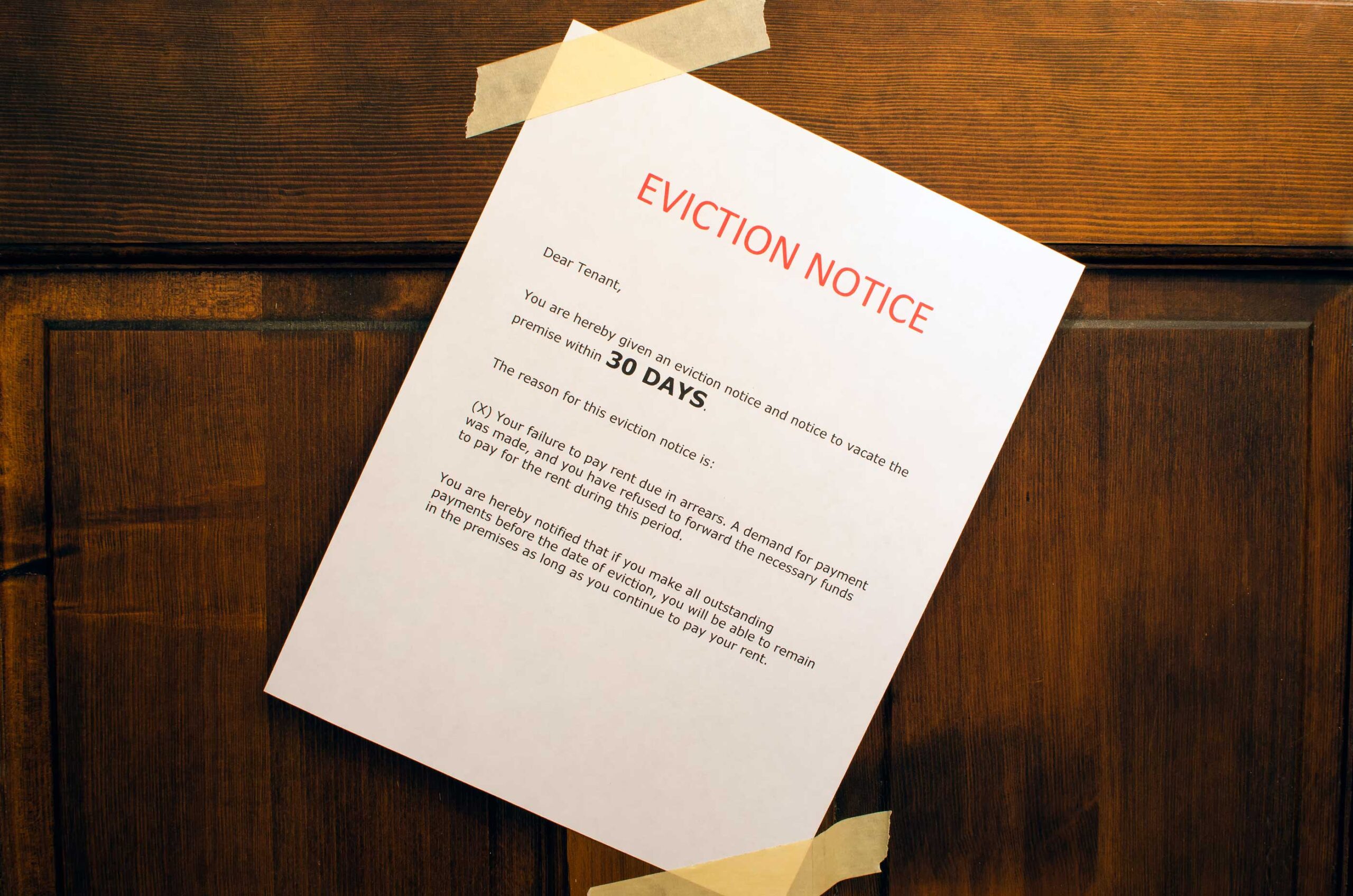Blog

Trusted Northwest Suburban Law Firm
847-944-9400
Eviction Basics for Landlords Part III: The 30 Day Eviction Notice in Illinois
(This is the third article in a three-part series for landlords about their legal obligations for 30 day eviction notices)
By Michael DeSantis
A 30 day eviction notice in Illinois is used by a landlord to terminate a tenant’s occupancy when they are renting on a month-to-month lease. According to the Illinois FED (Forcible Entry and Detainer Statute), a landlord can rightfully terminate a lease for no reason at all as stated in Section 9-207 (b)…
“ Except as provided in Section 9-207.5 of this Code, in all cases of tenancy for any term less than one year, other than tenancy from week to week, where the tenant holds over without special agreement, the landlord may terminate the tenancy by 30 days’ notice, in writing, and may maintain an action for forcible entry and detainer or ejectment.”
The tricky part of a 30 day eviction notice in Illinois is the timing. The eviction notice must be served no later than 30 days before the date of termination and must state that the tenancy will terminate on the last day of the calendar month (unless rent is due sometime other than the first of the month). In other words, to terminate a month-to-month lease at the end of February, in a non-leap year, the landlord must serve the notice on or before January 29. In months of 30 days, the notice must be served on or before the last day of the preceding month; for a 31-day month, the notice must be served on or before the first day of the same month. If the rent is due on some day other than the first of the month, the same principles apply. Make sure that your eviction notice is timed appropriately or the tenant could use it against you in court.
Some attorneys give the 30 day notice, file the eviction a couple days later, then not schedule the first court date until the 30 days has elapsed. This is not proper form. You must allow the full 30 day period for the tenant to vacate before filing for eviction. Unlike the 10 and 5 day evictions, you can terminate for no reason at all (although your legal counsel will discuss your decision to make sure no unlawful reason exists for your action). However, the 30 day eviction notice in Illinois takes longer. The 5-day eviction notice and 10-day eviction notice resolve more quickly because you can prove that the tenant did not pay or that they violated the lease.
Here are some other frequently asked questions about the 30 day eviction:
1. What should the eviction notice say? The eviction notice is known in the courts as a “notice to quit”. There is no specific language given for a 30-day notice in the statute. Our firm recommends the following language:
” YOU ARE HEREBY NOTIFIED that your tenancy of the following premises, to wit:
The property at (insert address) together with all buildings, sheds, closets, out-buildings, garages and other structures used in connection with said premises, will terminate on (insert day, month, date and year) and you are now hereby required to surrender possession of said premises to the undersigned on that day.
The notice is to be signed by the lessor or his or her agent, and no other notice or demand of possession or termination of such tenancy is necessary. Remember to date and sign the notice. It is also recommended to notarize an affidavit of service stating that you served the notice on a particular date. Failure to do could potentially be used against you in court.
2. How do I deliver the notice? According to the Illinois FED, you may either serve the tenant the notice in person or to a resident above the age of 13, or by mail with a return receipt signed by the tenant. It is crucial that you deliver the notice properly or it could be used by the defense in court.
3. What is the tenant’s obligation when they receive the 30-day notice? They should begin making plans to vacate within the 30 day period.
4. What should I do if the tenant does not comply? If the tenant does not comply with the notice, you can file suit in the county where the property is located. In order to do this, you need to file a Forcible Entry and Detainer Complaint. You also need to have a summons issued with the sheriff’s office for the tenants to appear in court.
The 30 day eviction notice in Illinois can feel like a lengthy process and during that time, it’s important that your rights are protected and that you are meeting all legal obligations of a landlord. At Gardi, Haught, Fischer & Bhosale, our team can navigate you through the eviction process as effortlessly as possible. Get in touch with us today for a free consultation.
